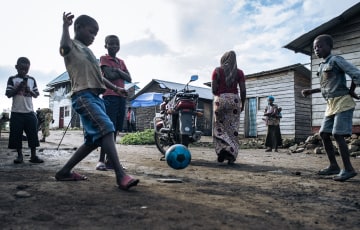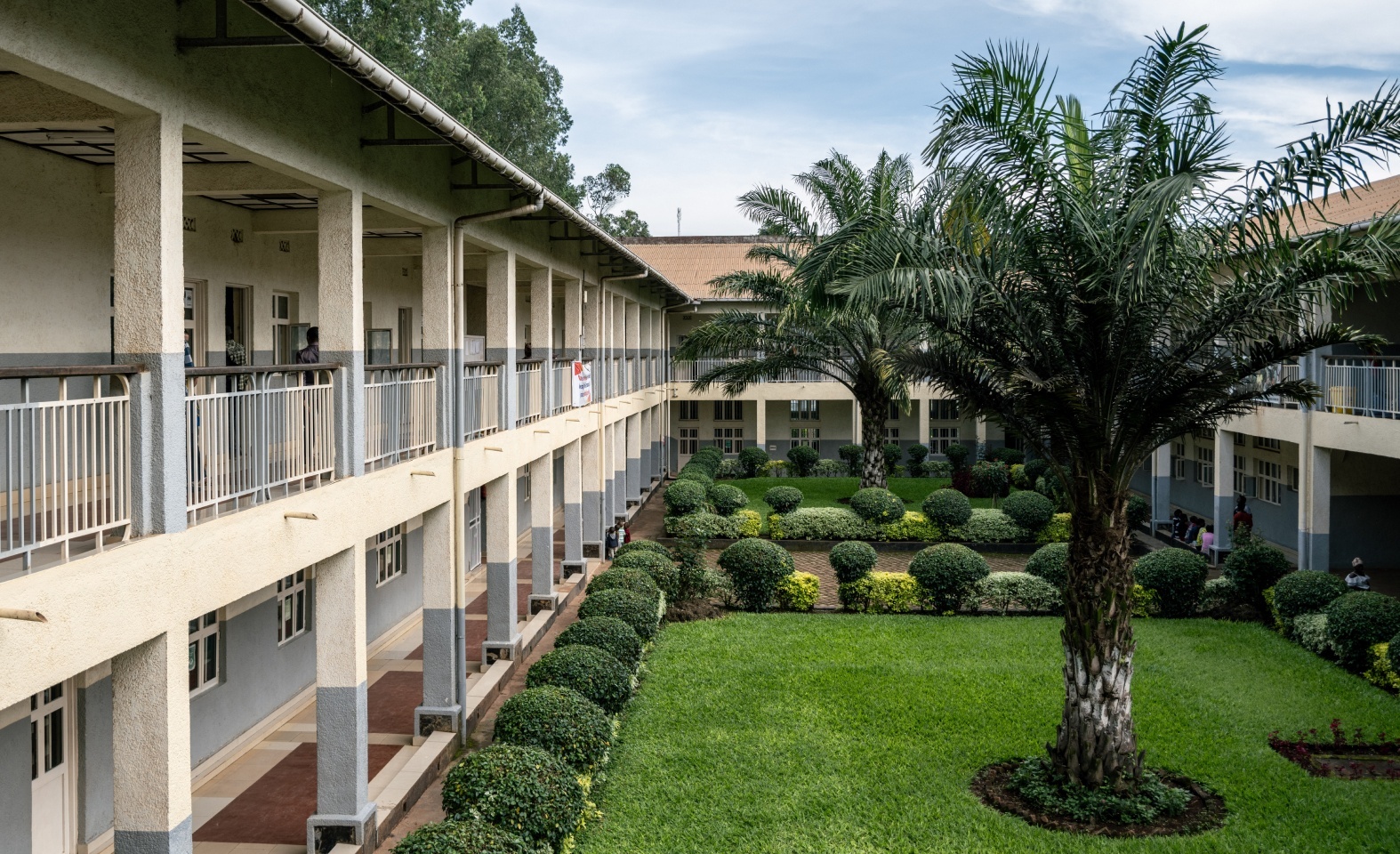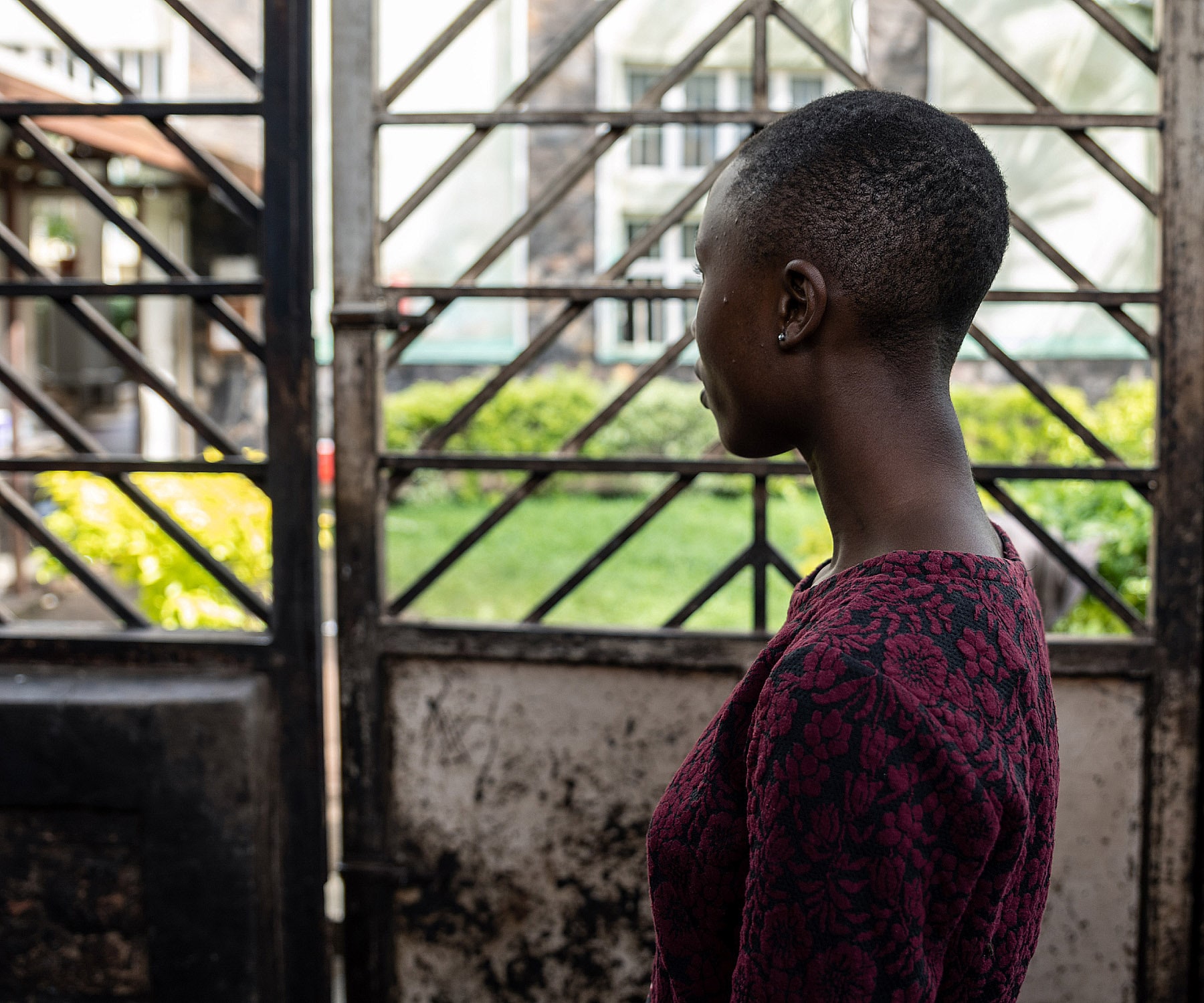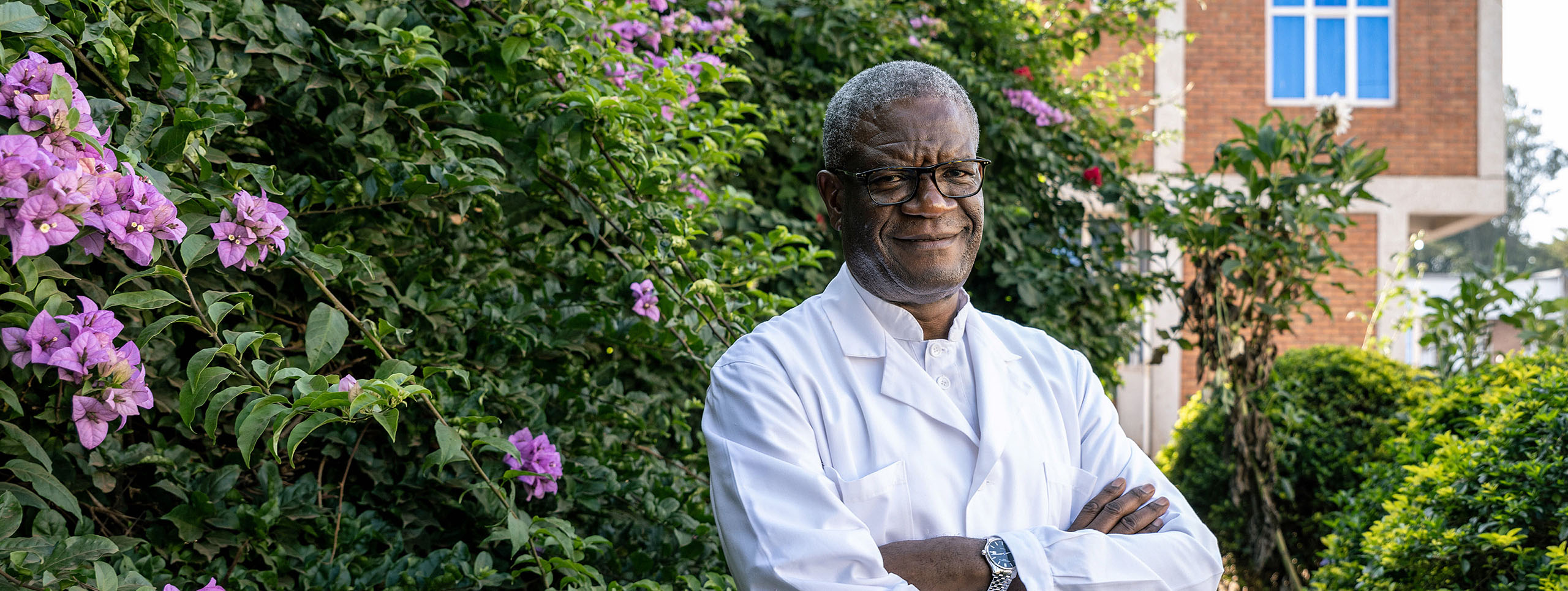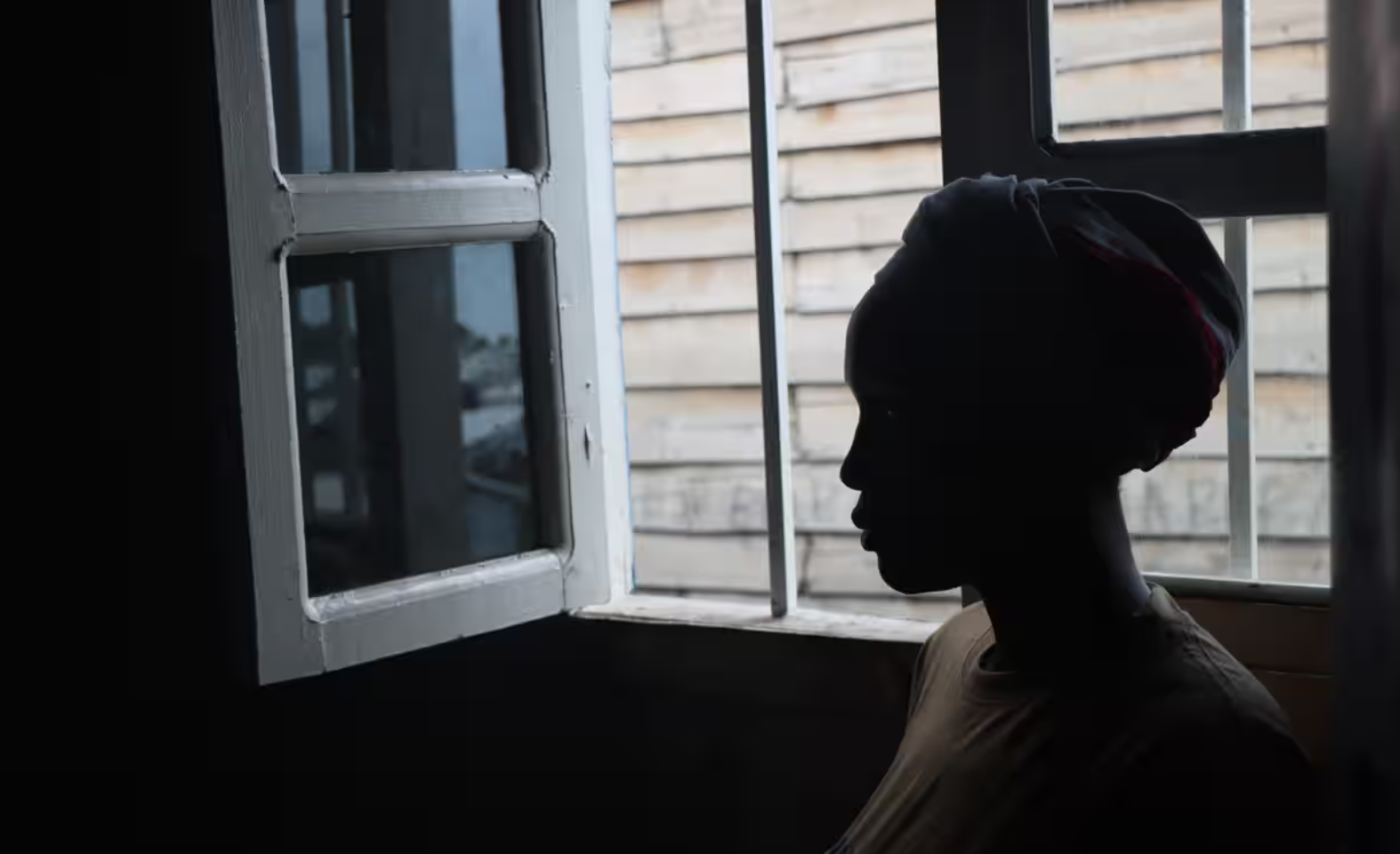Bukavu, November 7, 2020 — Memorandum from Dr. Denis Mukwege to President of the Democratic Republic of Congo, Félix Tshisekedi, on the occasion of ‘National Consultations’
Cliquez ici pour lire en français
The problems of the Democratic Republic of Congo (DRC) and their solutions have been known for several years. The great challenges of our country have been documented by many people and organizations, both nationally and internationally. What has always been lacking is the will and political courage of leaders at all levels of governance to implement ambitious and effective measures in order to drive the change necessitated by the country’s dramatic situation and the expectations of our population.
Our country is not doing well. The misery of the population is unbearable. In this context, yet another consultation only makes sense if it finally tackles the urgent and pressing issues without getting bogged down in endless palaver and deaf dialogues that have been observed in the past.
Several organizations and contacts invited to these consultations have made or will make relevant proposals in various fields of the political, economic, social, and cultural life of our nation.
In order to avoid redundancies, our contribution will mainly insist on the imperative to fight against impunity and the urgency of erecting justice as a major pillar of the rule of law as well as a lever of real and lasting peace, without which no development is possible.
From now on, we should law the foundations for this change by imposing a break with anti-values, corrupt practices, the system that has led us to the current chaos, and the men who have compromised themselves in various crimes in the past. Because with those individuals who destroyed our country — those at the root of the current insecurity — we cannot solve the crises we face and build a better future.
The fight against impunity in our country will require the application of the recommendations of the United Nations Mapping Report on the most serious violations of human rights and international humanitarian law committed in the territory of the DRC between 1993 and 2003. This report urges the Congolese authorities to use instruments of transitional justice to pave the way for reconciliation and peace. In addition, the gravity of the crimes committed in our country, since 1990 until today, invites our government to reach out to the Secretary General of the United Nations and to ask the Security Council for the establishment of an International Criminal Tribunal for the DRC in order to judge the national and foreign, state and non-state perpetrators of these atrocities.
The development of our country will remain hypothetical without ambitious, courageous, and profound institutional reforms which should include the reform of the security sectors (police, army, intelligence, etc.), justice (Constitutional Court, etc.), and the CENI. Without these reforms, we will never be in a state of law and the repeated crises will plunge the country tirelessly into chaos.
It is essential that the institutions of the Republic be apolitical and professional in order to prevent political, economic, social, and ethnic interest groups from continuing to dispute and to take over these institutions.
Mr. President of the Republic, we are convinced that if you yourself, along with the Congolese Government, take this path, not only our people will be with you, but also you will benefit from the support of the international community.
As Frantz Fanon said, “Each generation must, in a relative opacity, fulfill or betray it, in relative opacity”.
Your Excellency the President of the Republic,
We would first like to salute your initiative to launch consultations with the purpose of creating a “sacred union within the Nation”, and thank you for your willingness to join us in this spirit of openness and dialogue with civil society.
From your inauguration as head of state, you have shown the will to put an end to anti-values, which hamper efforts to consolidate the rule of law and undermine any prospect of sustainable social and economic development. These anti-values are often associated with the climate of impunity which largely prevails in our country and with the corruption which plagues the majority of our institutions.
In addition, you have declared that you are ready to give your life to restore peace to the east of the DRC, well aware that it is a priority to end the cycles of violence and the conflicts of which we have sadly witnessed the consequences for over 20 years at Panzi Hospital.
While our country has hosted one of the largest United Nations peacekeeping missions for over 20 years, as well as a multitude of peace agreements being signed, it is clear that attempts at security solutions and the policies of recent decades have systematically failed to protect civilians and bring peace. This is particularly because of the fact that the political agreements have sacrificed justice by integrating indiscipline into our defense and security forces through the process of mixing, botched disarmament, demobilization and reintegration programs and by granting promotions to those who should answer for their acts before national or international justice.
While Congolese authorities and the United Nations are seeking to agree on a strategy of gradual and conditional withdrawal from MONUSCO, it seems essential to mobilize all energies and to take advantage of the presence of the international community in the DRC to finally move forward on the path to lasting peace through justice.
It is in this context that we welcomed your communication at the Council of Ministers on August 7, 2020 where you instructed the government to put the transitional justice issue on its agenda. This communication paves the way for the implementation of the recommendations of the United Nations Mapping Report on the most serious violations of human rights and international humanitarian law committed on the territory of the DRC between 1993 and 2003, which invites Congolese authorities to use all the tools of transitional justice with the support of the international community.
In the same spirit, the Secretary General of the United Nations encouraged the adoption of a national transitional justice strategy in his report on September 21, 2020 on the DRC, which would make it possible to fight against impunity and to render justice to the victims of the most serious crimes.
The expression of your political will and the Secretary General’s exhortation are part of a very broad outpouring of Congolese civil society and citizens’ movements which demonstrated peacefully by the thousands on the 10th anniversary of the publication of the Mapping Report on October 1, 2020 to demand the end of impunity and the establishment of an International Criminal Court for the DRC and/or mixed specialized Chambers within the Congolese judicial system.
In addition, various religious denominations, including the Church of Christ in Congo and the National Episcopal Conference of Congo (Catholic Church), as well as European, Canadian, and American diplomats have also recently insisted on the need to establish prosecution mechanisms and international or internationalized judgement for the purpose of guaranteeing independence and impartiality in the administration of justice for crimes of the past and present.
We are convinced that the climate of impunity enjoyed by the perpetrators of the most serious crimes largely explains why the instability and serious violations of human rights and international humanitarian law continue to this day in many provinces of the country.
This is the reason why we therefore believe that it is a priority for the future of the Nation to mobilize a strong political will to develop a national transitional justice strategy and to implement it as soon as possible, with the support of the international community.
This strategy should include judicial and non-judicial mechanisms that enable society to remedy its heavy legacy of mass crimes and to guarantee victims their right to justice, truth, reparations, and the guarantees of non-recurrence of crimes. But also, a profound reform of the security sector and the sidelining of State agents who have been implicated in serious violations of human rights and international humanitarian law and in corrupt activities at large scale.
Finally, we urge you to make an official request to the Secretary General of the United Nations to support the establishment of an International Tribunal and specialized mixed chambers in the DRC.
Mister President,
The time has come to restore our dignity, to speak the truth, to speak the truth, to do justice to our millions of dead and to the survivors, but also to prevent the non-recurrence of the abuses, violations of human rights and humanitarian law committed on our territory by state, non-state, Congolese, and foreign actors.
Thank you in advance for the steps you will take to carry out the transitional justice process which, we hope more than anything, will make it possible to end impunity and consolidate peace in the DRC. We ask you to accept, your Excellency Mr. President of the Republic, our distinguished consideration.
Dr. Denis Mukwege
Nobel Peace Prize Laureate




